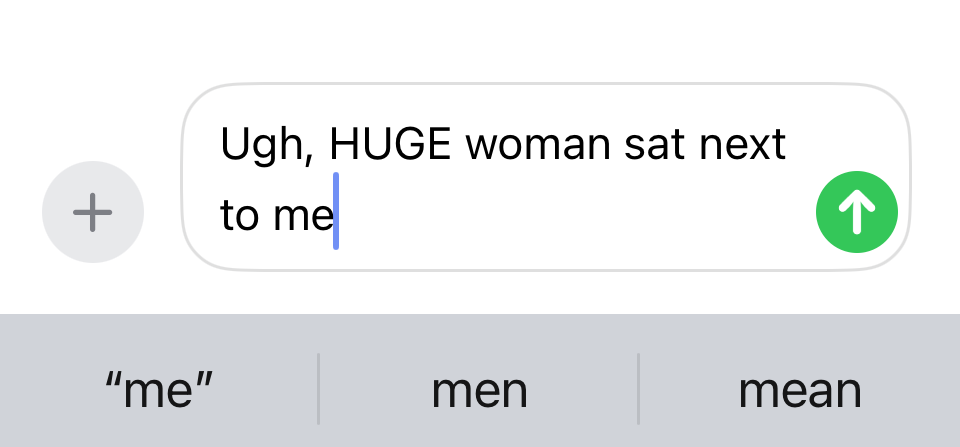Woman on a plane who saw man's body-shaming texts about her handles the situation with pure grace
“I was afraid that if I started this conversation with him, I would be asked to leave the plane.”
Screenshots of woman speaking to camera; a plane taking off.
Vanessa, a TikTok user who goes by (@soberspouse), is an inspiration to many because of the way she handled an incredibly uncomfortable situation on a flight from Tampa, Florida, to New York on Delta Airlines. It all started when she sat down beside a man, who immediately rolled his eyes at her.
When she sat down, she noticed he had sent a text message to someone that read: “Ugh, HUGE woman sat next to me,” she recalled. “As soon as I sat, I just glanced over, and I saw it. It was right there in front of my face, and after he had to hit send, he sent a series of empty texts to essentially push what he had written off the view of his screen,” Vanessa told The Mary Sue. Before the plane took off for the two-hour flight of misery, she posted a TikTok sharing her story while asking for kindness.
“Be kind. If you’re feeling inclined, can you send some love? I lost 60+ lbs and have actually been feeling good about myself,” she requested.
After two hours of torture in the sky, Vanessa landed in New York to countless well-wishers congratulating her on her weight loss. "You lost 60 lbs?!? CONGRATULATIONS! That clearly took a lot of effort from you… Don’t let the jerk derail you as you are on a JOURNEY!" one TikTok commenter wrote. "CONGRATS on losing 60lbs! That’s amazing!! So proud of you! Keep feeling good about yourself and do NOT let someone else that clearly doesn’t even like themselves make you doubt yourself!" another added.
During the flight, Vanessa wanted to speak her mind and tell the guy off, but she didn’t want to cause drama on the airplane. To make it through two hours without causing a scene was a lesson in grace. “I didn’t wanna say anything because I really needed to get home to my kids, and I was afraid that if I started this conversation with him, I would be asked to leave the plane,” she told The Mary Sue. “So I took a few deep breaths, made the TikTok or two. I remember thinking I wish I could tell the flight attendant, but I didn’t even wanna get up or move.”

Vanessa attributes her self-control to the personal development she’s made as a sober spouse. “When it happened, my husband was the first person I texted,” she told Upworthy. “He responded by validating the situation I was in and then reassured me I am beautiful, to take a deep breath, and that I would be home soon. If he didn't have the tools from the program, I'm sure the conversation would have looked different.”
Even though she stayed quiet, Vanessa had some things she would have wished she could have told the man. “I’ve thought about this a lot. Part of me has some choice words for him and his khaki pants and his manspread, but then I remember the whole lesson in kindness here. I'm going to assume he's been through something or has been hurt before, and just remember that his comment was more about what he's experienced than me. I honestly have prayed for him and hope he can find some kindness to pay forward in his life,” she told Upworthy.
Vanessa shared a follow-up video sharing the real lesson of the incident. "I'm so glad this little moment of lemons has turned into so much lemonade for so many people," she said. "The amount of kindness that's been spread and shared is really unbelievable."

